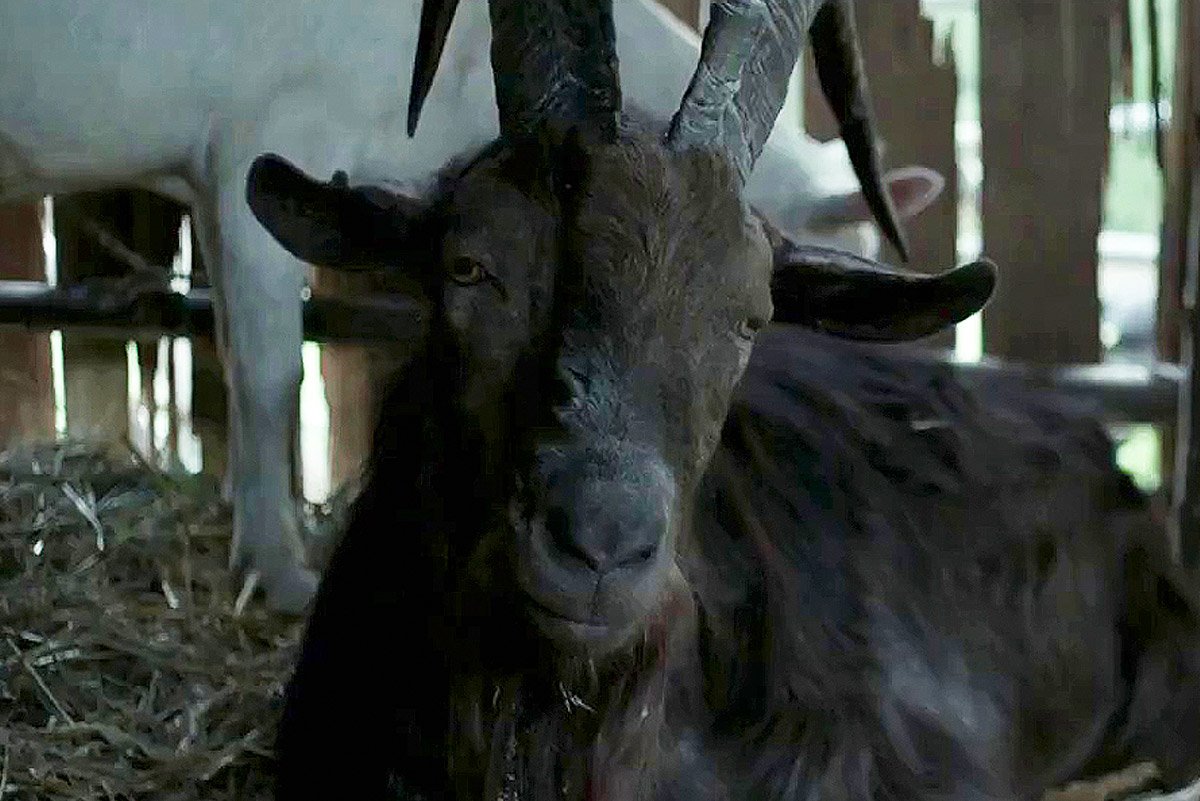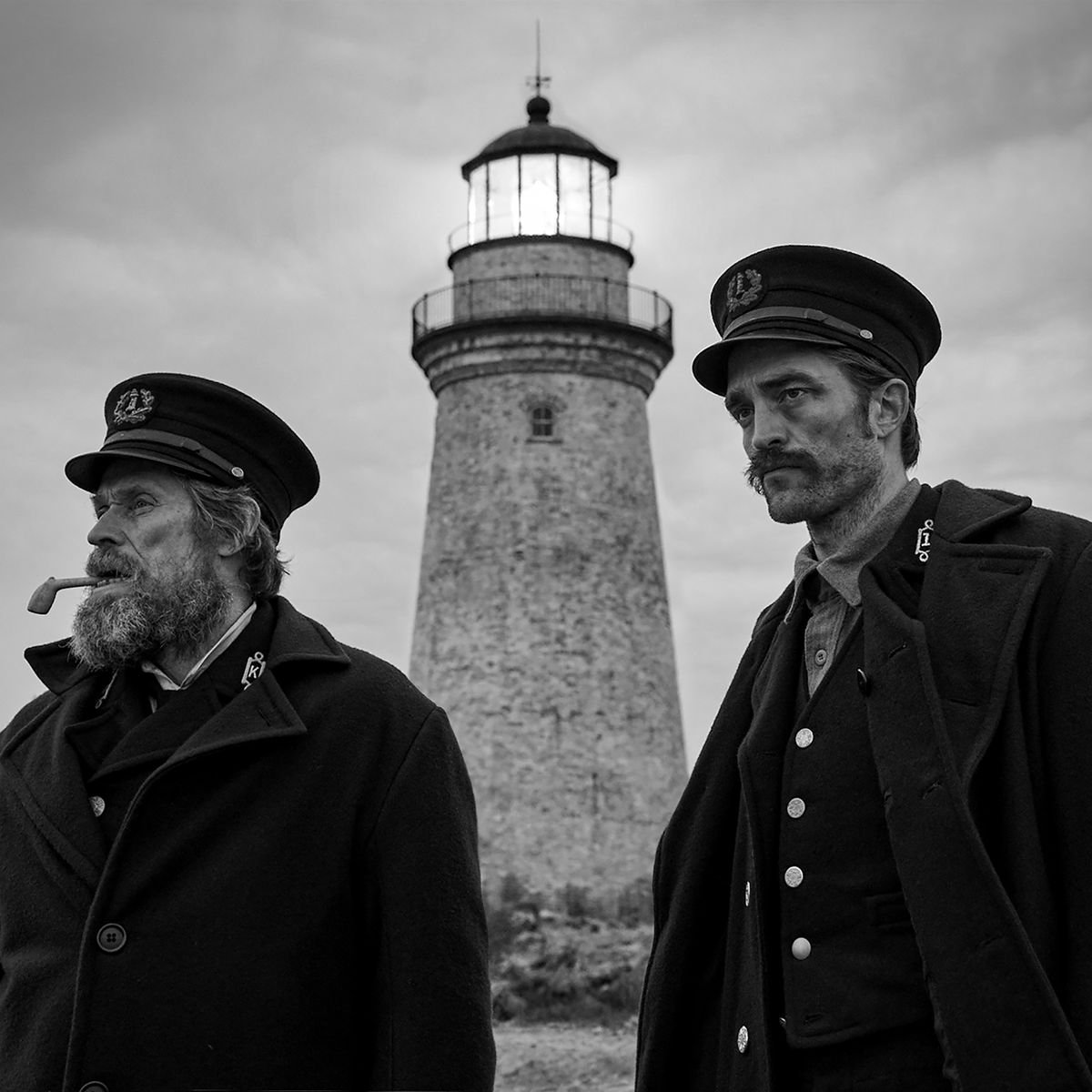Robert Eggers: Stylization Through Dialect
Robert Eggers is a director who takes pride in his research: the famed director of The Witch, The Lighthouse and The Northman is known for historically accurate films that experts enthusiastically endorse. Eggers’ background in costume, set and production design alongside his passion for history and folktales help shape the worlds in which his films take place. The New Yorker’s recent profile of Eggers paints an excellent picture of his background and style as a director. All three of his films are unique and the common thread among them is the accurate portrayal of dialects not heard in the present day. Alongside his impressive set designs and costuming, the use of rarely-heard dialects adds depth to Egger’s characters.
The Witch begins in 17th-century New England when a family is exiled from their Puritan settlement over a dispute with the local government. The first lines spoken ask “what went we out into this wilderness to find?” The tone itself is Biblical in nature and his anger and frustration are on clear display as he and his family are banished over a religious dispute despite escaping to the New World to find sanctuary from persecution.
After being banished the family finds a clearing and gives thanks for their newfound home. God-fearing daughter Thomasin, played by Anya Taylor-Joy, is seen asking for forgiveness. She has been idle in her work, neglects her prayers as well as commits the grave sin of playing on the Sabbath. It’s very clear that Thomasin loves her family and cares deeply for her unbaptized baby brother Samuel who suddenly disappears into the dark woods. During her time with Caleb at the brook, she asks him “what’s the matter with thee? Come hither.” She embraces Caleb and comforts him the best way she knows how; unaware of the sins Caleb is committing she continues to press Caleb, and tells him how she misses apples and that they haven’t had any since leaving England. Apples have an obvious biblical implication here, but it’s also a fruit that Thomasin and Caleb both adore and fondly miss in their new home.
Throughout this film, we can see the intentions of the family members based on their actions and more specifically how they speak with each other. The family certainly sees their missing baby as a tragedy, but the most catastrophic element of his disappearance is that he is an unbaptized child seemingly doomed to spend eternity in hell because he has yet to be forgiven by God. From here on out every bit of dialogue spoken to Thomasin is suspicious in nature as the paranoid Puritans spiral into delusions provided by the nearby forest. The patriarchal figure William even instructs his son Caleb to lie to his mother after admitting that he has traded supplies for “thy mother’s silver cup,” and Caleb is to “speak none of this to [his] mother.” This lie ultimately is the catalyst for the further persecution of Thomasin as a witch.
William’s extreme piousness proves to be his downfall by the film's end. The first moments that William and Caleb share the morning after the disappearance should be tender as a father comforts his eldest son. However, on the bleak gray day, William tells his son “Tis no ease to rise on a gray day. The devil holds fast your eyelids.” William’s earliest waking moments are filled with frightening thoughts of the devil and he is sure to let his son know the dangers of the devil that are always nearby.
The devil in disguise is found out to be Black Philip, the family’s lone billy goat whom the twins Jonas and Mercy have befriended. Black Philip speaks at the climax of the film and we hear the 17th-century dialect asking Thomasin “wouldst thou like the taste of butter? A pretty dress? Wouldst thou like to live deliciously?” The line delivery by Daniel Malik portraying the wicked goat gives the words themselves a buttery and luxurious texture.
Shifting to 1890s New England, Eggers introduces us to The Lighthouse and the mystery of the light on a small rock. This period of history was heavily researched by the Eggers brothers as they were writing, and conversations throughout the film between Robert Pattinson and Willem Dafoe showcase that regionalism exceptionally.
The Lighthouse depicts two keepers, Ephraim Winslow and Thomas Wake, riding out a storm on the rocky island they inhabit during their shift. Winslow, played by Robert Pattinson, slowly devolves into a psychological mess while experienced wickie Thomas Wake, portrayed by Willem Dafoe, has mastered the art of loneliness during his supposed time at sea.
After what seems to be several long weeks on the rock Winslow admits that if he had a steak he would absolutely fuck it. In his wickie accent Dafoe breaks out into one of his best monologues that begins with a stark “HARK!” The use of ye and thee is highly prevalent throughout the film, painting the best working-class portrait which feels incredibly authentic to this period in history. The most memorable “ye” might come from the beginning of said monologue where Wake asks “yer fond of me lobster ain’t ye?” Commitment to accent and dialogue of this time period is obvious in the actors’ performance.
Between the farting, mermaid sex and mythology it makes sense that the characters of Winslow and Wake are moral opposites compared to those of the religious Puritans in The Witch. However, accents and language play a key role in defining these characters. We learn that Winslow is trying to be a good worker while running from his past and Wake is a foul-smelling townie that somehow has an odd liquor stash buried as rations and has quite possibly never seen open water before. During their drunken dinners Winslow slips up in his lie while he and Wake are trading stories of trades from their past. He let his last boss die in an accident while working as a lumberjack and assumed his name so he could keep getting, in his words, “an honest day’s work.” Wake on the other hand tells tall tales every night of how he and his fellow shipmates ate grass with no teeth to survive being shipwrecked and ill. He’s lived his life near, and in, the ocean but his adventures at sea are dubious at best.
Eggers’ first big studio production, The Northman, granted Alexander Skarsgard’s wish to be in the Viking movie he has wanted to be in his whole life. What makes The Northman special is the accuracy of the language spoken by the Slavic peasants down to the farming techniques which were sourced from scholars who are experts on this time period. Eggers even wanted his Icelandic poet cowriter Sjon to bluntly translate Icelandic into English to give the dialogue a rough feel and an interesting tone.
As the story progresses the audience can plainly see the love that the king has for his son and the brutal reality of King Aurvandill. Recently returned from battle Aurvandill admits that the enemy has had a taste of his liver and Amleth will soon need to be ready as his next successor. King Aurvandill knows he doesn’t have much time left in this mortal world. In fact, he refuses to become a “shameful graybeard” and not die by the sword.
The psychedelic ritual that follows the King’s return presents Amleth with his entire outlook on life. He must avenge his father if he is slain by an enemy sword or forever live in shame. This shame haunts Amleth his entire life and it fuels his rage during his formative years after watching his father murdered and his mother kidnapped by his own uncle. Taking on the identity of a slave Amleth meets Olga played by Anya Taylor-Joy. At first their relationship is symbiotic in nature but they develop a lasting bond by the end of the story. A quick conversation between the pair here and there, a nice bath in the hot spring after being nearly beaten to death and we can see the love between these two characters.
Even though the pair start as enemies they know that they can help each other. Amleth is desperate to get to Iceland and swims onto the boat carrying Olga to her life of servitude. However, Olga spots him as soon as he sneaks on board. “Your sheep’s clothing does not disguise you, Northman.” This suspiciousness is warranted given the fact that Olga just watched Amleth and his fellow warriors slaughter her village but she is willing to help him. Olga’s suspicions are evident in the sneer of her voice. Amleth might look like a slave but she knows he is dangerous and despises his presence.
Upon arrival in Iceland Olga and Amleth, both admit that their one goal is to leave this miserable island on which they have just arrived at. The pair soon begin their covert operations to make this dream a reality and Olga becomes increasingly interested in the plight of Amleth. Olga’s slight interest quickly turns to aid via her “witchcraft” which is her lengthy knowledge of the culinary arts including the properties of herbs and the effects they have on the human mind. Without Olga’s help Amleth would have never been able to cause the necessary fear and disruption needed to eventually kill his uncle.
Amleth has led a life based on revenge until he met Olga. It’s rare to see Amleth be selfless but he is willing to risk his life when he sees soldiers getting ready to execute Olga. He reveals himself and with a fiery tone admits who he is to his uncle. “I am Amleth the Bear-Wolf son of King Aurvandil War-Raven, and I am his vengeance!” The time for revenge is now, Amleth would rather reveal himself than see Olga slaughtered for nothing. For this selfless act Olga eventually rescues Amleth when he is caught by his uncle’s troops and once again saves his life. The struggles we see within these characters are grand and at times feel mythological themselves. The language used throughout provides a clear and brutal tone which provides the foundation for this epic.
When asked in a recent interview with the Ringer if he would ever make a movie set in modern times, Eggers responded with “no thank ye.” It’s clear that he has a passion for getting things right historically down to every detail on his sets. Through his films we have a brief look through the window of time that few directors have given their audience. Eggers respects the history he writes about so much so that every line is crafted with care.








Troy Burke is a writer based in Austin, Texas who happens to enjoy movies among other things. Follow @TroyBurke5 on Twitter for some of the worst takes you've ever seen.